Which 28 fruit are best for weight loss
When it comes to losing weight and maintaining a healthy lifestyle, incorporating fruits into your diet is a wise choice. Not only are fruits packed with essential vitamins, minerals, and fiber, but many of them also possess properties that can support your weight loss journey. In this article, we will explore the top 28 fruits that are best for weight loss. Including these fruits in your daily meal plan can not only satisfy your sweet tooth but also help you achieve your weight loss goals. Let’s dive in!
Apples:
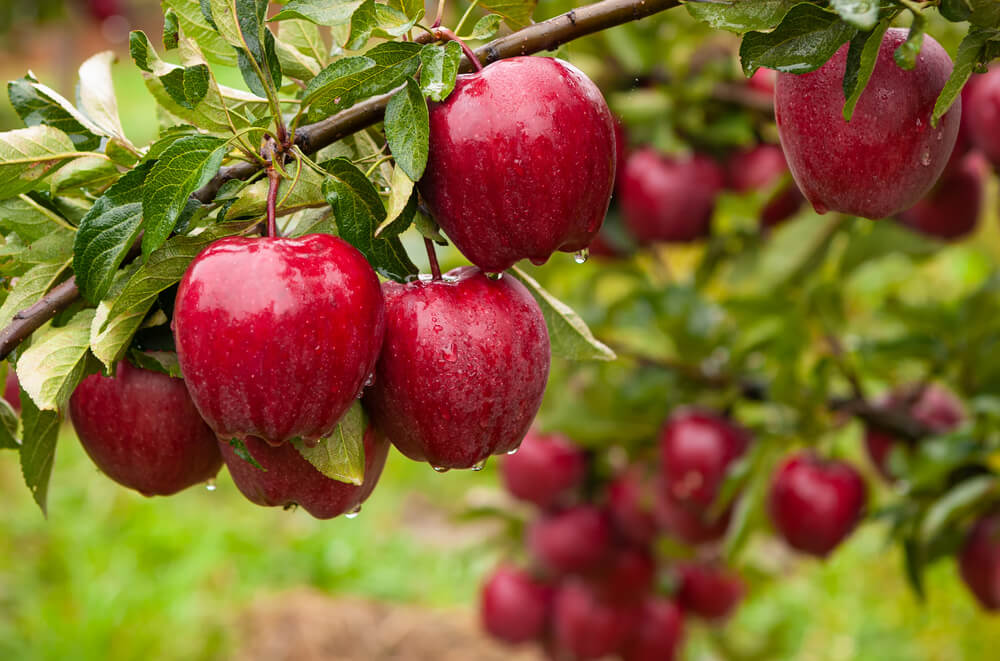
Apples are a popular and versatile fruit known for their crisp texture and sweet or tart flavors. Here is the nutritional information for one cup (125 grams) of sliced apples:
- Calories: 57
- Carbohydrates: 15 grams
- Dietary fiber: 3 grams
- Sugars: 11 grams
- Fat: 0 grams
- Protein: 0 grams
- Vitamin C: 4.6 milligrams (8% of the recommended daily intake)
- Vitamin A: 73.9 IU (2% of the recommended daily intake)
- Potassium: 134 milligrams
- Calcium: 11 milligrams
- Magnesium: 6 milligrams
Apples are rich in fiber, which promotes satiety and keeps you feeling fuller for longer. They are also low in calories, making them an ideal snack for weight loss.
Berries (Strawberries, Blueberries, Raspberries):

Here is the approximate nutritional information for one cup (140 grams) of mixed berries, including strawberries, blueberries, and raspberries:
- Calories: 50-85 (depending on the specific berries and their size)
- Carbohydrates: 11-20 grams (depending on the specific berries)
- Dietary fiber: 2-8 grams (depending on the specific berries)
- Sugars: 4-15 grams (depending on the specific berries)
- Fat: 0.5-1 gram (depending on the specific berries)
- Protein: 1-2 grams (depending on the specific berries)
- Vitamin C: 15-35 milligrams (25-60% of the recommended daily intake, depending on the specific berries)
- Vitamin K: 20-35 micrograms (25-45% of the recommended daily intake, depending on the specific berries)
- Folate: 20-45 micrograms (5-15% of the recommended daily intake, depending on the specific berries)
- Potassium: 100-240 milligrams (2-5% of the recommended daily intake, depending on the specific berries)
- Calcium: 20-40 milligrams
- Magnesium: 10-20 milligrams
Berries are packed with antioxidants and fiber, which aid in weight management. They are also relatively low in calories and high in water content, making them a delicious and nutritious choice.
Grapefruit:

Here is the approximate nutritional information for one cup (230 grams) of fresh grapefruit segments:
- Calories: 52
- Carbohydrates: 13 grams
- Dietary fiber: 2 grams
- Sugars: 9 grams
- Fat: 0 grams
- Protein: 1 gram
- Vitamin C: 64 milligrams (107% of the recommended daily intake)
- Vitamin A: 268 IU (5% of the recommended daily intake)
- Potassium: 285 milligrams (8% of the recommended daily intake)
Grapefruit is known for its metabolism-boosting properties. It is low in calories and high in fiber, making it an excellent choice for weight loss.
Oranges:

Here is the approximate nutritional information for one cup (180 grams) of orange segments:
- Calories: 85
- Carbohydrates: 21 grams
- Dietary fiber: 4 grams
- Sugars: 17 grams
- Fat: 0 grams
- Protein: 2 grams
- Vitamin C: 95.8 milligrams (160% of the recommended daily intake)
- Vitamin A: 317 IU (6% of the recommended daily intake)
- Potassium: 326 milligrams (9% of the recommended daily intake)
Oranges are not only refreshing but also a great source of vitamin C and fiber. The high fiber content aids in digestion and supports weight loss.
Watermelon:
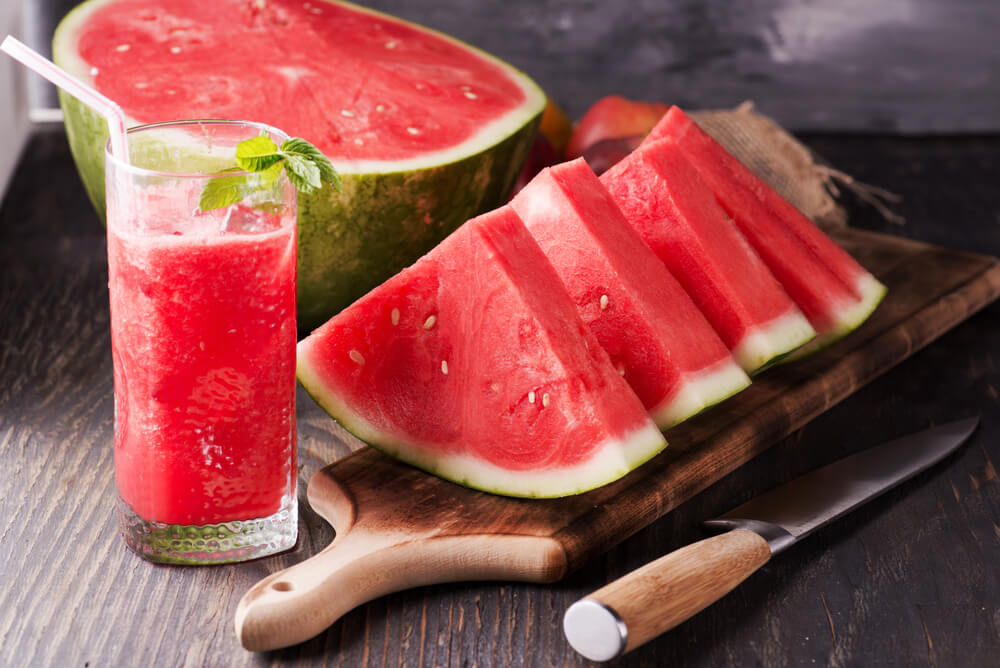
Here is the approximate nutritional information for one cup (152 grams) of diced watermelon:
- Calories: 46
- Carbohydrates: 12 grams
- Dietary fiber: 0.6 grams
- Sugars: 9 grams
- Fat: 0.2 grams
- Protein: 0.9 grams
- Vitamin C: 12.5 milligrams (21% of the recommended daily intake)
- Vitamin A: 876 IU (17% of the recommended daily intake)
- Potassium: 171 milligrams (5% of the recommended daily intake)
Watermelon is mostly water, making it a hydrating and low-calorie option. It is also rich in vitamins A and C, as well as lycopene, an antioxidant known for its weight loss benefits.
Pears:

Here is the approximate nutritional information for one cup (196 grams) of sliced pears:
- Calories: 51
- Carbohydrates: 13 grams
- Dietary fiber: 4 grams
- Sugars: 9 grams
- Fat: 0.2 grams
- Protein: 0.6 grams
- Vitamin C: 4.2 milligrams (7% of the recommended daily intake)
- Vitamin K: 8.4 micrograms (11% of the recommended daily intake)
- Potassium: 133 milligrams (4% of the recommended daily intake)
Pears are high in fiber and have a satisfying, sweet taste. They help curb cravings and provide essential nutrients to support weight loss.
Kiwi:

Here is the approximate nutritional information for one cup (180 grams) of sliced kiwi fruit:
- Calories: 108
- Carbohydrates: 26 grams
- Dietary fiber: 5 grams
- Sugars: 16 grams
- Fat: 1 gram
- Protein: 2 grams
- Vitamin C: 164 milligrams (273% of the recommended daily intake)
- Vitamin K: 41 micrograms (52% of the recommended daily intake)
- Vitamin E: 2.6 milligrams (13% of the recommended daily intake)
- Potassium: 552 milligrams (16% of the recommended daily intake)
Kiwi is a nutrient-dense fruit that is low in calories. It is rich in fiber, vitamin C, and other beneficial compounds that aid in weight management.
Peaches:

Here is the approximate nutritional information for one cup (154 grams) of sliced peaches:
- Calories: 60
- Carbohydrates: 15 grams
- Dietary fiber: 2 grams
- Sugars: 13 grams
- Fat: 0.4 grams
- Protein: 1.4 grams
- Vitamin C: 11.6 milligrams (19% of the recommended daily intake)
- Vitamin A: 570 IU (11% of the recommended daily intake)
- Potassium: 285 milligrams (8% of the recommended daily intake)
Peaches are low in calories and high in fiber, making them a satisfying and weight-loss-friendly fruit. They are also rich in vitamins A and C.
Pineapple:

Here is the approximate nutritional information for one cup (165 grams) of diced pineapple:
- Calories: 82
- Carbohydrates: 22 grams
- Dietary fiber: 2 grams
- Sugars: 16 grams
- Fat: 0 grams
- Protein: 1 gram
- Vitamin C: 78.9 milligrams (131% of the recommended daily intake)
- Vitamin B6: 0.2 milligrams (9% of the recommended daily intake)
- Vitamin A: 94 IU (2% of the recommended daily intake)
- Potassium: 180 milligrams (5% of the recommended daily intake)
- Calcium: 21 milligrams
- Magnesium: 20 milligrams
Pineapple contains bromelain, an enzyme that aids digestion and helps break down proteins. It is also low in calories and high in vitamin C.
Mangoes:
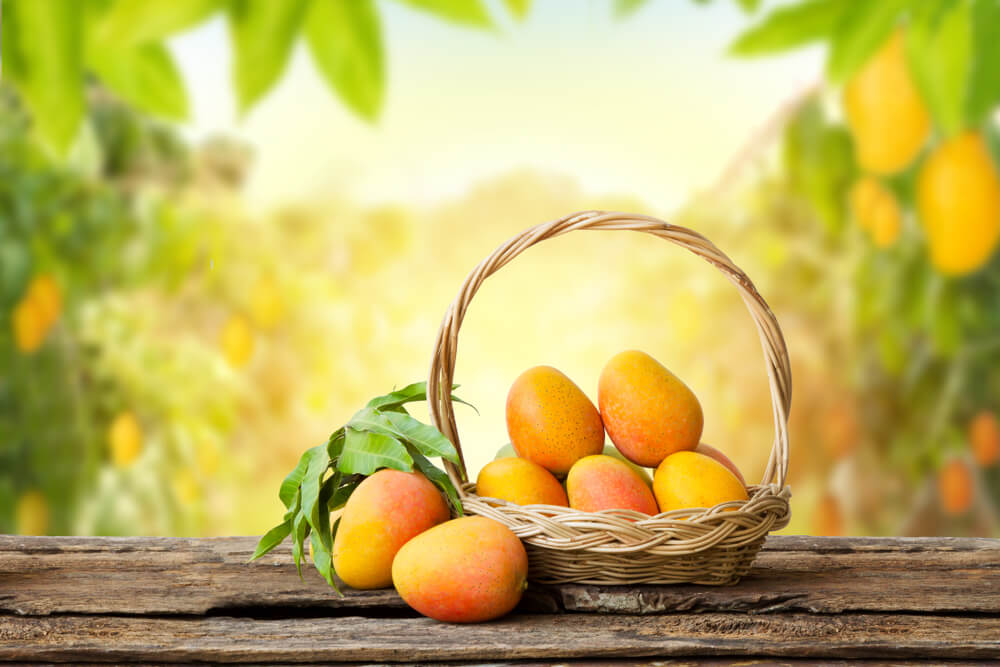
Here is the approximate nutritional information for one cup (165 grams) of diced mango:
- Calories: 99
- Carbohydrates: 25 grams
- Dietary fiber: 3 grams
- Sugars: 23 grams
- Fat: 0.6 grams
- Protein: 1.4 grams
- Vitamin C: 60.1 milligrams (100% of the recommended daily intake)
- Vitamin A: 1126 IU (22% of the recommended daily intake)
- Vitamin E: 1.8 milligrams (9% of the recommended daily intake)
- Potassium: 257 milligrams (7% of the recommended daily intake)
Mangoes are not only delicious but also provide fiber and vitamins. They can help satisfy your sweet tooth while contributing to your weight loss efforts.
Papaya:

Papaya is a tropical fruit known for its vibrant color, sweet taste, and numerous health benefits. Here is the nutritional information for one cup (140 grams) of papaya:
- Calories: 62
- Carbohydrates: 16 grams
- Dietary fiber: 2.5 grams
- Sugars: 11 grams
- Fat: 0.4 grams
- Protein: 0.7 grams
- Vitamin C: 87.2 milligrams (145% of the recommended daily intake)
- Vitamin A: 1532 IU (31% of the recommended daily intake)
- Folate: 57.6 micrograms (14% of the recommended daily intake)
- Potassium: 357 milligrams
- Calcium: 32.2 milligrams
- Magnesium: 22.4 milligrams
Papaya is rich in digestive enzymes, fiber, and antioxidants. It supports healthy digestion and can aid in weight management.
Cherries:

Here is the approximate nutritional information for one cup (138 grams) of sweet cherries:
- Calories: 87
- Carbohydrates: 22 grams
- Dietary fiber: 3 grams
- Sugars: 18 grams
- Fat: 0 grams
- Protein: 2 grams
- Vitamin C: 10.4 milligrams (17% of the recommended daily intake)
- Vitamin A: 1283 IU (26% of the recommended daily intake)
- Potassium: 342 milligrams (10% of the recommended daily intake)
Cherries are low in calories and high in antioxidants. They provide a natural sweetness and can be enjoyed as a guilt-free snack.
Grapes:

Here is the approximate nutritional information for one cup (151 grams) of grapes:
- Calories: 104
- Carbohydrates: 27 grams
- Dietary fiber: 1 gram
- Sugars: 23 grams
- Fat: 0 grams
- Protein: 1 gram
- Vitamin C: 4 milligrams (7% of the recommended daily intake)
- Vitamin K: 14.6 micrograms (18% of the recommended daily intake)
- Potassium: 288 milligrams (8% of the recommended daily intake)
Grapes are high in water content and fiber, making them a filling and nutritious option. They are also rich in antioxidants and can aid in weight loss.
Guava:
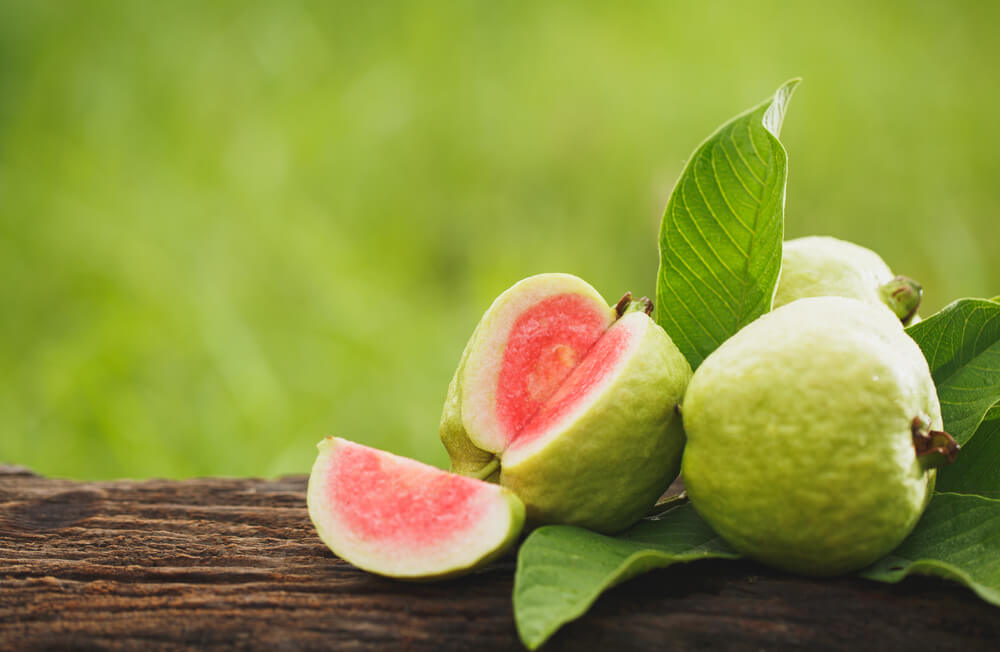
Here is the approximate nutritional information for one cup (165 grams) of sliced guava:
- Calories: 112
- Carbohydrates: 24 grams
- Dietary fiber: 9 grams
- Sugars: 15 grams
- Fat: 1.6 grams
- Protein: 4.2 grams
- Vitamin C: 377 milligrams (629% of the recommended daily intake)
- Vitamin A: 1,328 IU (27% of the recommended daily intake)
- Potassium: 688 milligrams (20% of the recommended daily intake)
Guava is a tropical fruit that is low in calories and high in fiber. It promotes digestion, supports metabolism, and aids in weight management.
Pomegranate:

Here is the approximate nutritional information for one cup (174 grams) of pomegranate arils (seeds):
- Calories: 144
- Carbohydrates: 39 grams
- Dietary fiber: 7 grams
- Sugars: 32 grams
- Fat: 2 grams
- Protein: 3 grams
- Vitamin C: 28.8 milligrams (48% of the recommended daily intake)
- Vitamin K: 28.5 micrograms (36% of the recommended daily intake)
- Potassium: 400 milligrams (11% of the recommended daily intake)
Pomegranate seeds are rich in antioxidants and fiber. They provide a satisfying crunch and can be added to salads or enjoyed on their own.
Apricots:
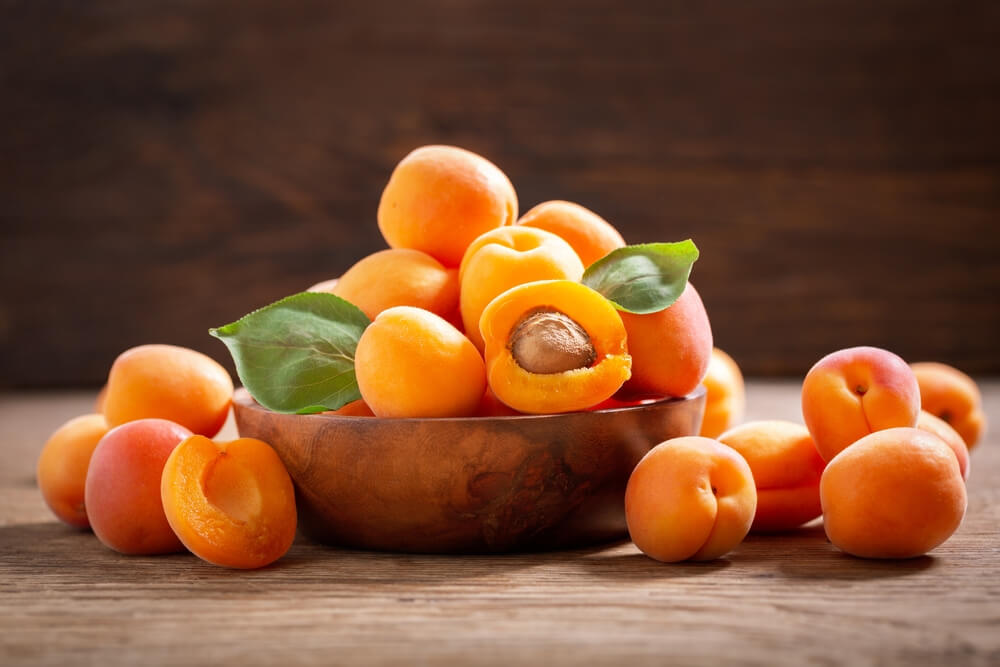
Here is the approximate nutritional information for one cup (165 grams) of sliced apricots:
- Calories: 79
- Carbohydrates: 19 grams
- Dietary fiber: 3 grams
- Sugars: 13 grams
- Fat: 0.4 grams
- Protein: 2 grams
- Vitamin A: 3740 IU (75% of the recommended daily intake)
- Vitamin C: 10.5 milligrams (18% of the recommended daily intake)
- Potassium: 427 milligrams (12% of the recommended daily intake)
Apricots are low in calories and rich in fiber. They are also a good source of vitamins A and C, making them a healthy addition to your weight loss diet.
Plums:
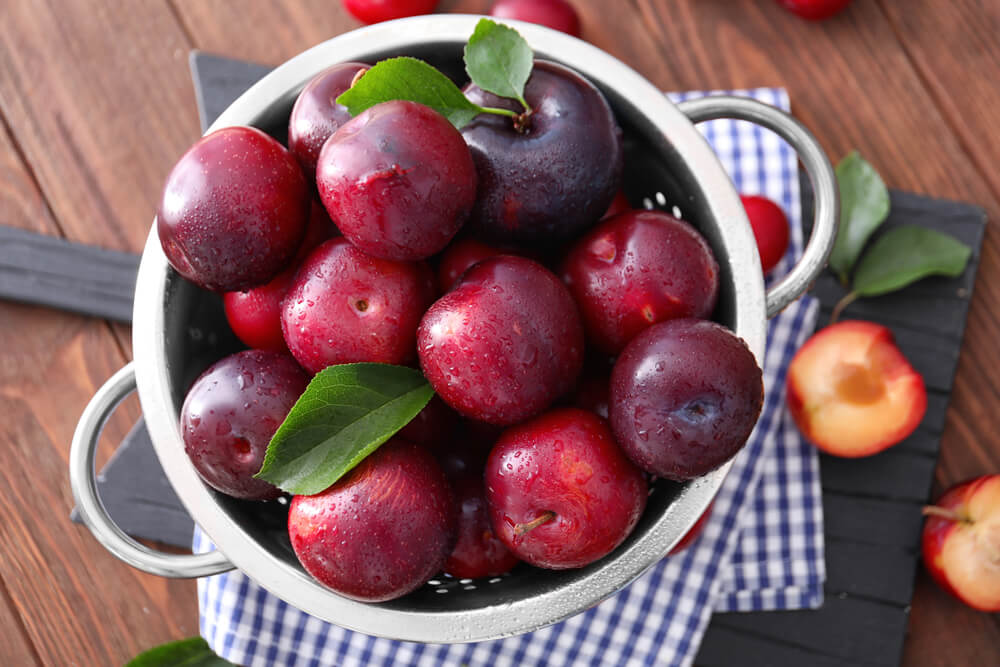
Here is the approximate nutritional information for one cup (165 grams) of sliced plums:
- Calories: 76
- Carbohydrates: 19 grams
- Dietary fiber: 2 grams
- Sugars: 16 grams
- Fat: 0 grams
- Protein: 1 gram
- Vitamin C: 10.6 milligrams (18% of the recommended daily intake)
- Vitamin K: 10.6 micrograms (13% of the recommended daily intake)
- Potassium: 259 milligrams (7% of the recommended daily intake)
Plums are packed with fiber and antioxidants. They support digestion and help regulate blood sugar levels, contributing to weight management.
Cantaloupe:
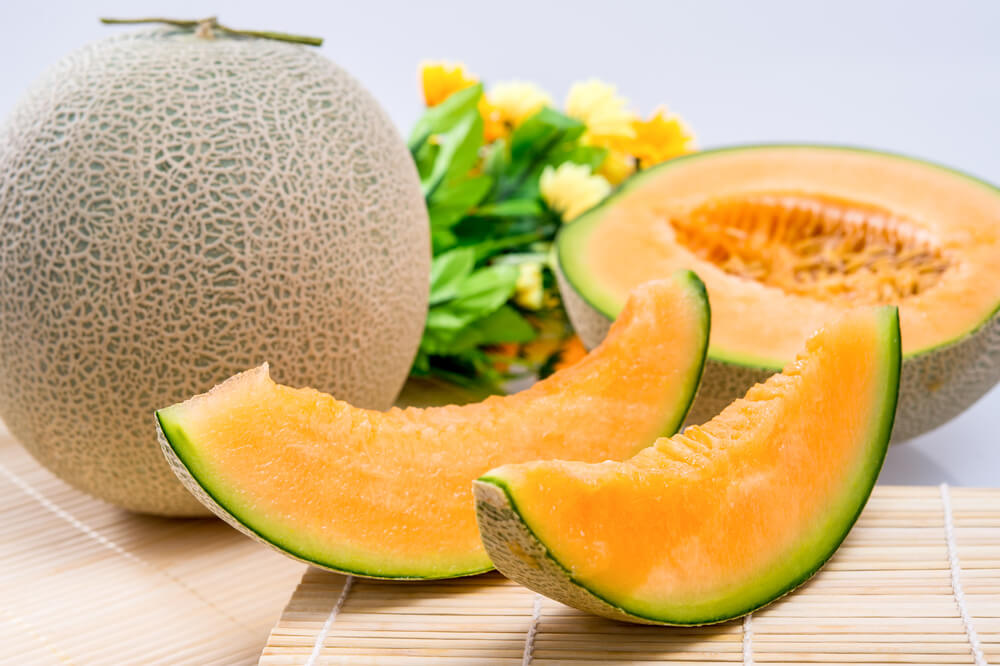
Here is the approximate nutritional information for one cup (160 grams) of diced cantaloupe:
- Calories: 53
- Carbohydrates: 13 grams
- Dietary fiber: 1.5 grams
- Sugars: 12 grams
- Fat: 0.3 grams
- Protein: 1.3 grams
- Vitamin A: 5412 IU (108% of the recommended daily intake)
- Vitamin C: 58.7 milligrams (98% of the recommended daily intake)
- Potassium: 417 milligrams (12% of the recommended daily intake)
Cantaloupe is a hydrating fruit with a high water content. It is low in calories and provides essential vitamins and minerals for overall health and weight loss.
Cranberries:

Here is the approximate nutritional information for one cup (95 grams) of whole cranberries:
- Calories: 46
- Carbohydrates: 12 grams
- Dietary fiber: 4 grams
- Sugars: 4 grams
- Fat: 0 grams
- Protein: 0 grams
- Vitamin C: 14.6 milligrams (24% of the recommended daily intake)
- Vitamin E: 1 milligram (5% of the recommended daily intake)
- Vitamin K: 5.1 micrograms (6% of the recommended daily intake)
- Potassium: 85 milligrams (2% of the recommended daily intake)
Cranberries are known for their urinary tract health benefits, but they are also low in calories and high in antioxidants. Enjoy them fresh or dried for a tangy and nutritious treat.
Lemon:

Lemons are citrus fruit known for their sour taste and acidic properties. While lemons are often used for their juice rather than consuming the fruit itself, here is the approximate nutritional information for one cup (244 grams) of lemon juice:
- Calories: 61
- Carbohydrates: 21 grams
- Dietary fiber: 4 grams
- Sugars: 6 grams
- Fat: 0.6 grams
- Protein: 2 grams
- Vitamin C: 112 milligrams (187% of the recommended daily intake)
- Vitamin B6: 0.2 milligrams (9% of the recommended daily intake)
- Folate: 31 micrograms (8% of the recommended daily intake)
- Potassium: 303 milligrams (9% of the recommended daily intake)
Lemon is a citrus fruit that aids in digestion and detoxification. It can be added to water or used as a flavor enhancer in various dishes, supporting your weight loss efforts.
Avocado:

Here is the approximate nutritional information for one cup (150 grams) of mashed avocado:
- Calories: 234
- Carbohydrates: 12 grams
- Dietary fiber: 10 grams
- Sugars: 0.7 grams
- Fat: 21 grams
- Saturated fat: 3 grams
- Monounsaturated fat: 14 grams
- Polyunsaturated fat: 2.7 grams
- Protein: 2.9 grams
- Vitamin K: 21 micrograms (26% of the recommended daily intake)
- Vitamin C: 10 milligrams (17% of the recommended daily intake)
- Vitamin E: 3.1 milligrams (16% of the recommended daily intake)
- Potassium: 708 milligrams (20% of the recommended daily intake)
Avocado is a unique fruit that is high in healthy fats and fiber. Although it is higher in calories, it provides satiety and can be a valuable addition to a balanced weight-loss diet.
Raspberries:
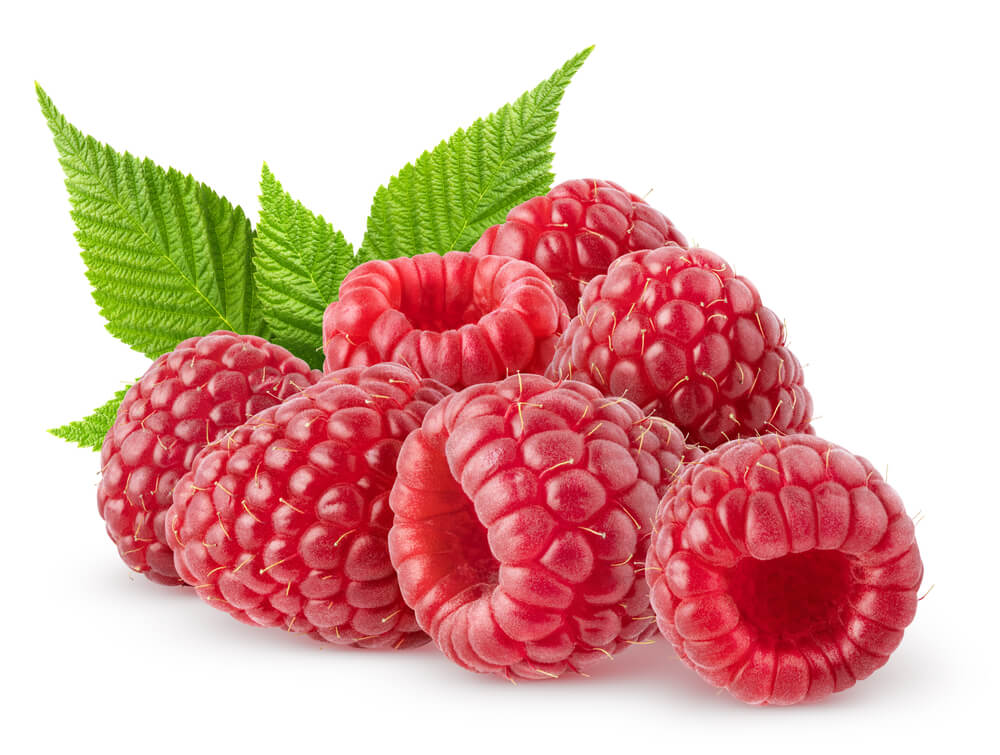
Here is the approximate nutritional information for one cup (123 grams) of raspberries:
- Calories: 64
- Carbohydrates: 15 grams
- Dietary fiber: 8 grams
- Sugars: 5 grams
- Fat: 1 gram
- Protein: 1 gram
- Vitamin C: 32.2 milligrams (54% of the recommended daily intake)
- Vitamin K: 9.6 micrograms (12% of the recommended daily intake)
- Potassium: 186 milligrams (5% of the recommended daily intake)
Raspberries are rich in fiber and antioxidants. They are also low in calories and can be enjoyed as a tasty and satisfying snack.
Blackberries:

Here is the approximate nutritional information for one cup (144 grams) of blackberries:
- Calories: 62
- Carbohydrates: 14 grams
- Dietary fiber: 8 grams
- Sugars: 7 grams
- Fat: 0.7 grams
- Protein: 2 grams
- Vitamin C: 30.2 milligrams (50% of the recommended daily intake)
- Vitamin K: 29.7 micrograms (37% of the recommended daily intake)
- Vitamin A: 308 IU (6% of the recommended daily intake)
- Potassium: 233 milligrams (7% of the recommended daily intake)
Blackberries are high in fiber and low in calories. They provide a burst of sweetness and nutrients while aiding in weight management.
Passion Fruit:
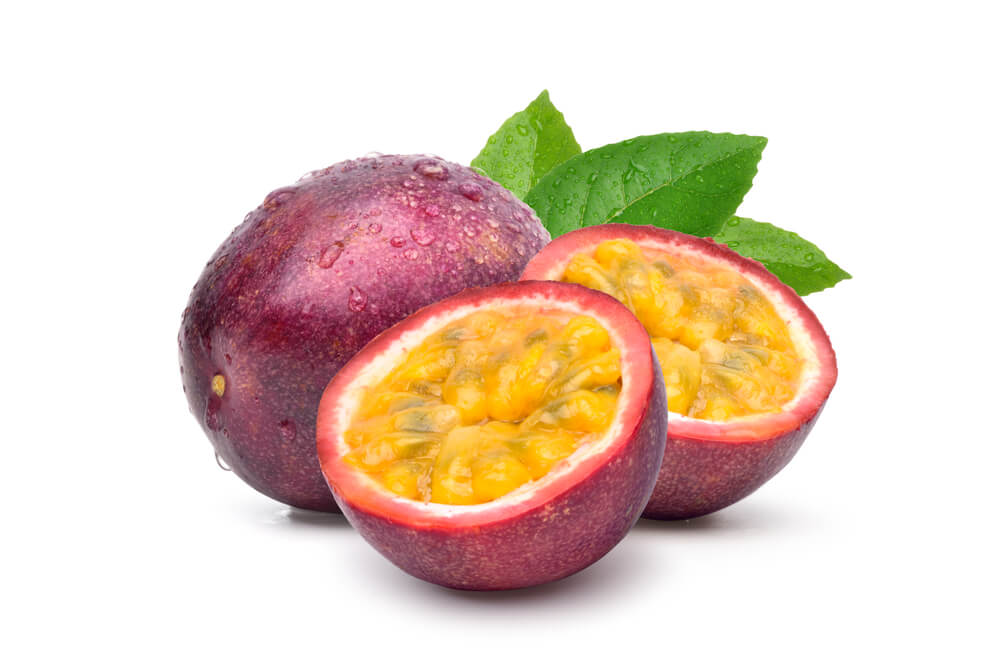
Here is the approximate nutritional information for one cup (236 grams) of passion fruit pulp:
- Calories: 229
- Carbohydrates: 55 grams
- Dietary fiber: 24 grams
- Sugars: 25 grams
- Fat: 2 grams
- Protein: 5 grams
- Vitamin C: 63.6 milligrams (106% of the recommended daily intake)
- Vitamin A: 1274 IU (25% of the recommended daily intake)
- Potassium: 811 milligrams (23% of the recommended daily intake)
Passion fruit is low in calories and rich in fiber. It supports digestion and helps control appetite, making it a great choice for weight loss.
Blueberries:

Here is the approximate nutritional information for one cup (148 grams) of blueberries:
- Calories: 84
- Carbohydrates: 21 grams
- Dietary fiber: 4 grams
- Sugars: 15 grams
- Fat: 0.5 grams
- Protein: 1 gram
- Vitamin C: 14.4 milligrams (24% of the recommended daily intake)
- Vitamin K: 28.6 micrograms (36% of the recommended daily intake)
- Vitamin E: 0.8 milligrams (4% of the recommended daily intake)
- Potassium: 114 milligrams (3% of the recommended daily intake)
Blueberries are known for their antioxidant properties. They are low in calories and high in fiber, contributing to weight management and overall health.
Strawberries:

Here is the approximate nutritional information for one cup (144 grams) of sliced strawberries:
- Calories: 46
- Carbohydrates: 11 grams
- Dietary fiber: 3 grams
- Sugars: 7 grams
- Fat: 0.4 grams
- Protein: 1 gram
- Vitamin C: 94 milligrams (157% of the recommended daily intake)
- Vitamin K: 3.2 micrograms (4% of the recommended daily intake)
- Folate: 29 micrograms (7% of the recommended daily intake)
- Potassium: 220 milligrams (6% of the recommended daily intake)
Strawberries are a delicious and refreshing fruit that is low in calories and high in fiber. They provide essential nutrients and can satisfy your sweet cravings.
Tangerines:
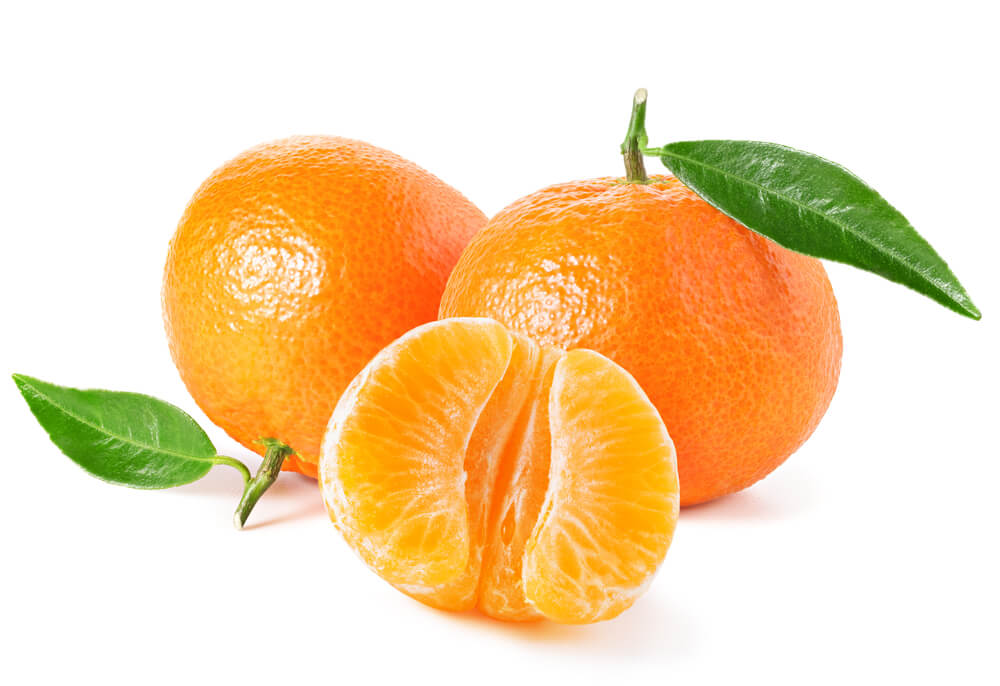
Here is the approximate nutritional information for one cup (195 grams) of tangerine segments:
- Calories: 103
- Carbohydrates: 26 grams
- Dietary fiber: 3 grams
- Sugars: 21 grams
- Fat: 0.6 grams
- Protein: 1.7 grams
- Vitamin C: 47.8 milligrams (80% of the recommended daily intake)
- Vitamin A: 1556 IU (31% of the recommended daily intake)
- Potassium: 313 milligrams (9% of the recommended daily intake)
Tangerines are a citrus fruit that is low in calories and high in vitamin C. They can provide a tangy and nutritious addition to your weight loss diet.
Jackfruit:
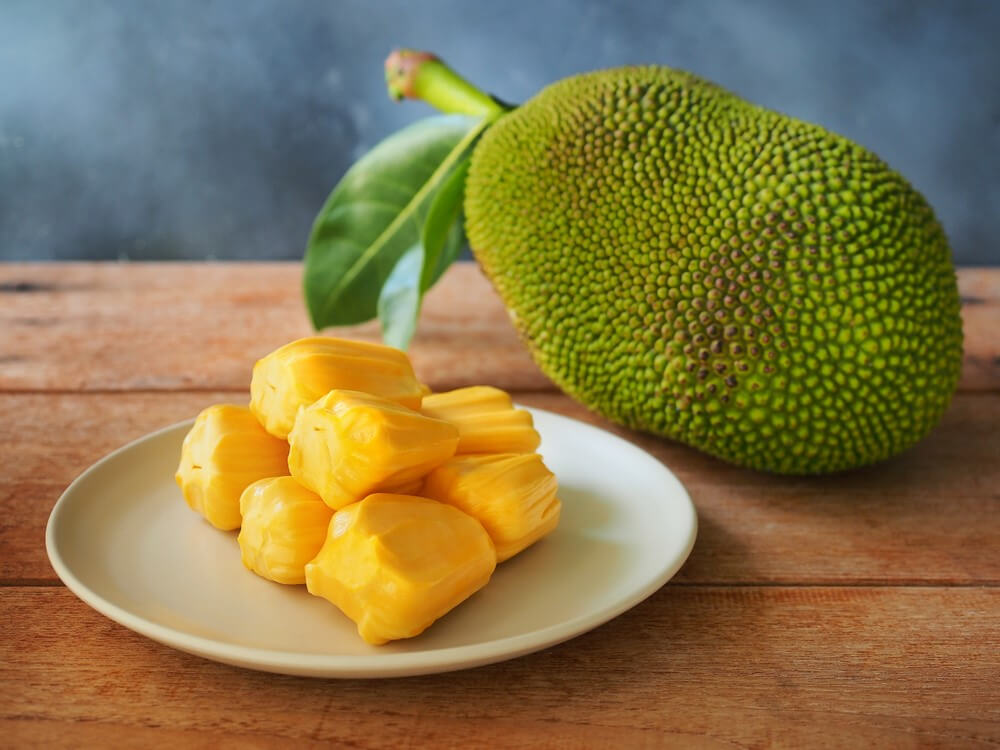
Here is the approximate nutritional information for one cup (165 grams) of sliced jackfruit:
- Calories: 157
- Carbohydrates: 40 grams
- Dietary fiber: 2.5 grams
- Sugars: 25 grams
- Fat: 0.5 grams
- Protein: 2.8 grams
- Vitamin C: 14.7 milligrams (25% of the recommended daily intake)
- Vitamin A: 140 IU (3% of the recommended daily intake)
- Potassium: 739 milligrams (21% of the recommended daily intake)
Jackfruit is a tropical fruit that is low in calories and high in fiber. It can be used as a plant-based alternative in various dishes, supporting weight loss efforts.
Conclusion:
Incorporating these 28 fruits into your weight-loss diet can provide you with essential nutrients, fiber, and antioxidants while satisfying your sweet cravings. Remember, while fruits are nutritious, moderation and balance are key. Combine these fruits with a well-rounded diet and regular exercise for optimal weight loss results. Embrace the natural goodness of fruits and enjoy the journey to a healthier and happier you.

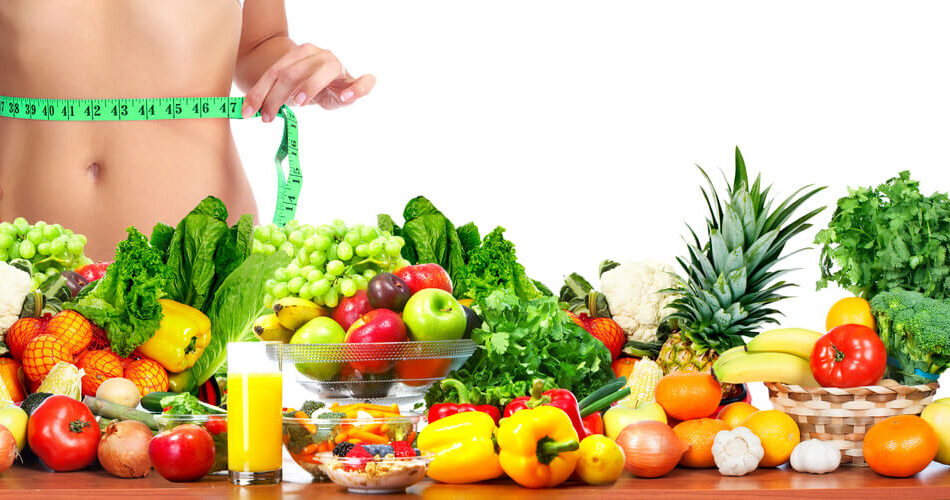
Nice information